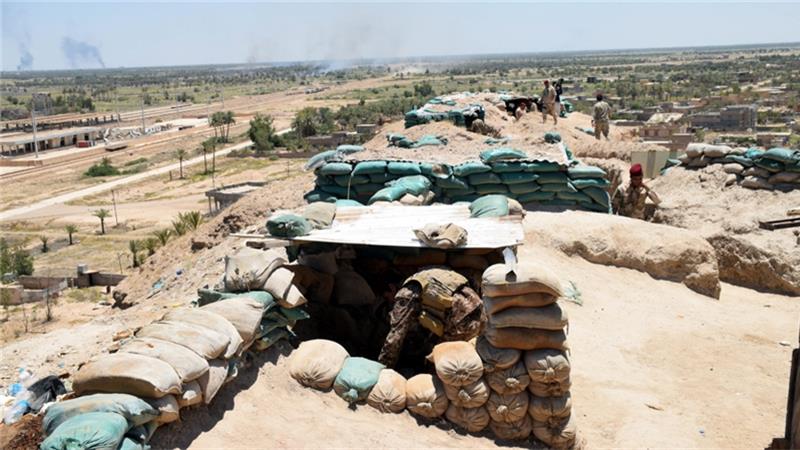Tens of thousands of Iraqis have been displaced and hundreds of troops killed amid an army military offensive against the Islamic State of Iraq and the Levant (ISIL) in Fallujah in Anbar province.
Three days of fighting have left more than 30,000 people displaced from the city, in addition to the more than 32,000 who were already uprooted from Fallujah since the outset of the army offensive, the Norwegian Refugee Council said in a statement on Sunday.
“This comes after months of besiegement,” Karl Schembri of the NRC told Al Jazeera, explaining that the city was already enduring difficult humanitarian conditions.
“They have been eating rotten dates and animal feed – and drinking from the river, which is undrinkable.”
Fallujah: Civilians suffer as Iraq retakes government HQ
More than 300 Iraqi soldiers and fighters from Shia militias known as the Popular Mobilisation Units were killed during the last two days of fighting. The Iraqi army claims it killed more than 500 ISIL fighters during the assault.
Fallujah, one of the first key cities ISIL, also known as ISIS, captured in 2014, is a strategically significant area for the Iraqi army. Iraqi forces and Popular Mobilisation Units have been attacking ISIL fighters district by district in recent days.
“Fallujah has been historically such a difficult city to take, and more importantly such a difficult city to maintain,” Renad Mansour, a fellow at the Carnegie Middle East Centre, told Al Jazeera.
“I think the citizens of the city are waiting to see what will happen next,” he continued, adding that they will wait to see “what Iraqi forces will do as they begin to clear through [and] whether certain paramilitaries associated with the Shia will commit crimes.”
Troops have also been sent to the southern outskirts of Mosul, another ISIL-held city in northern Iraq, where the army announced a military offensive on Saturday.
Upwards of 3.4 million Iraqis have been displaced since January 2014, according to the UNHCR, the UN refugee agency.
[Source: Al-Jazeera]





 WhatsApp us
WhatsApp us 

